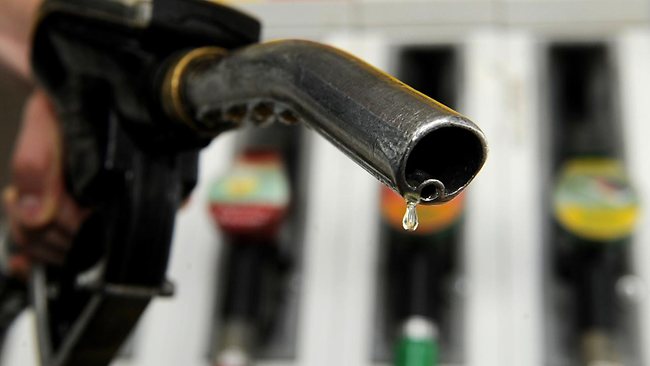Fuel is one of our biggest expenditures when operating a business that relies on a vehicle. When we calculate the cost of transportation and operating an average business vehicle, fuel is most often about the third highest operating cost.
Getting the Right Fuel
Getting the right fuel at the right price is important but deciding on the right fuel and how you manage it can be even more important.
Just so we can see the operating costs of your average work vehicle in the clear light of day for what it really is, here are some general averages to work by.
If we set up the cost of a $40,000 vehicle leased over a 5 year period with an average distance of 20,000km per year we will see the following results (these figures are only general average examples and will vary by vehicle, loan type, and general circumstance):
Vehicle lease (no residual): $200 per week
Depreciation: $100 per week (this is an average based on 20,000km per year over 5 years)
Servicing: $20 per week
Insurance ( cover average): $60 per week
Registration (maximum): $15 per week
AND Fuel:
15L/100km based on $1.50 /Lt $87 per week
12L/100km based on $1.50 /Lt $70 per week
10L/100km based on $1.50 /Lt $58 per week
8L/100km based on $1.50 /Lt $46 per week
Petrol, LPG or diesel?
Probably the most commonly asked question is which fuel should I choose in my new car? Fuel prices do fluctuate considerably day to day but let’s consider that these days diesel is not much different to Petrol in cost, and indeed it is often marginally higher.
Your fuel consumption in a similar size engine is usually considerably different. An average of a 2.5-litre diesel would be approximately 8-9 Lt/100 Km and in 2.5-litre petrol, it would normally be about 11-12 Lt/100 km. From the numbers above you can see that at an average fuel price of $1.50 per litre, the diesel is going to cost you $46 per week and the petrol is going to cost you about $70 per week, which in reality is a difference of $1,200 per year.
Servicing and the initial cost of the diesel is usually a bit more and calculating the difference on an average it is approximately $40 per week more for the diesel, or $2,000 per year more.
The big winner for the diesel is usually in the life and resale value, as diesel engines run much cooler and the engines will last longer. Generally, the diesel will devalue at a rate of 25% less than petrol and this will more than compensate for the extra cost of servicing and original purchase value.
So what is the bottom line difference? The answer is not much and really the big difference is if you are an environmentally minded person or business. Why? Well, it is surprising to most people but modern types of diesel actually emit far less harmful greenhouse gasses that petrol engines. So maybe the bottom line may not be in your pocket immediately but in the pockets of our future generations.
As for LPG, the jury is still out there. With increasing LPG prices way above where they should be, considering the low cost of production, the very high prices still on conversions, the problems with low quality fitters and the fact that LPG runs much hotter than the other fuels and can still create some problems if the manufacturers use cheap metals in their engines, you have to wonder if the effort is equal the reward.
What is the reward? About $1,000 less fuel cost over the above examples of diesel and petrol. The disadvantages are the $35 per week increase in your lease over petrol and the potential loss of warranty (warranties are not honoured by manufacturers on conversions not done by them but are honoured by good installers, but let’s hope something borderline between the engine and the drive train does not fail).
Hybrid and Electric?
Electric vehicles have been around for a little while now while the new kid on the block is the Hybrid.
Hybrids are a combination of electric and another fuel. One part of the engine or the low-speed component of the travel (such as in starting, heavy traffic or small maneuvers) are powered by the electric and the rest is powered by the other conventional fuel.
This saves on consumption of the other fuel and the clever bit is the other fuel when operating the vehicle charges the small battery that operates the electric engines.
The technology is new but is proving popular and apart from the initial small issues, it has been a successful transition to lower consumption vehicles. Thes hybrids are still a bit more expensive than the fully conventional fuel engines but the technology is improving and you will be seeing more of these on the market in the coming years where larger use is on the electrics and less on the conventional fuels.
Electric only is making some brilliant headway but still a long way to go with problems including, distance to travel, the expense of the vehicle, charging point availability and battery size and weight.
Technology is on the improve and it may be a few years but it will be the obvious option to fossil fuels in the future.
Fuel Cards
Fuel cards are fantastic for both small and big business as they just solve all the accounting and control issues over fuel usage and cost. One fuel card account for a business can allow the accountants and bookkeepers, often an overworked family member, to monitor all fuel costs for multiple vehicles and measure the consumption by date, registration number or kilometres.
Just not having to deal with hundreds of small receipts, cash transactions and over usage is enough to compensate for the small cost of the cards. The cost of the cards can be an issue but it comes down to convenience. There are multiple brand fuel cards out there but they have an inherent cost associated with the luxury of being able to pull into a larger number of multi-brand fuel stations. The single brand fuel cards like the Shell card and Caltex Star Card may only offer you one brand but the cost of use is so small it is not calculable ($1 per month per card) and then there is no management fee or interest (if you pay on time). A multi-brand card like Motorpass has a huge convenience but can have a 2.5% surcharge at many service stations and a card fee. However, they allow shopper dockets whereas the others don’t so you can make up the difference if you only want to choose service stations with shopper dockets (back to Shell and Caltex).
Eligibility
If you are an ABN holder, registered business, company or salary packager you can apply for a fuel car or find out more information by contacting National Fleet Finance.

Fleet Saver
This is the latest product developed by National Fleet. It is an offset of the Salary Saver product, purpose built for small to medium business. The product allows small business to manage their fleet of vehicles more efficiently and have no more paper trail or excel spreadsheet.
- Track and arrange vehicle servicing.
- Track and manage all associated vehicle costs like insurance, service and maintenance and registration renewal.
- Provide finance payments on set dates for your entire fleets.
- Provide fuel purchasing and monitoring usage from each driver.
Provide accounting information on all vehicle operational expenses
- Allow live tracking for vehicle location and use.
- Provide live FBT monitoring for accounting purposes.
Learn More
Get a MULTIPLE Quote now...




